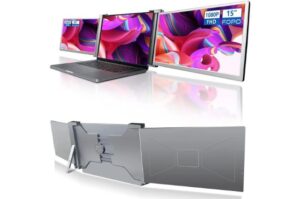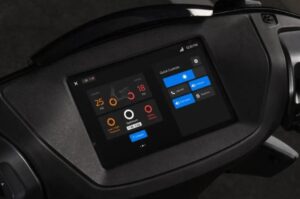
Traditional diesel and gasoline-powered boats have been the primary form of waterway transit. However, they are not only costly to operate and maintain, but they also pollute lakes and rivers by generating heat, noise, stink, fuel and lubricant waste. Solar powered boats do not require any gasoline or lubricants. Furthermore, the electric drive and battery storage have reduced maintenance expenses.
Solar boats allow water bond places to become entirely sustainable not only on land but also on the water. The hulls of solar boats are integrally intended for exceptional electric propulsion, from their particular hull design to their smart and safe lithium energy storage system. The vessels are completely fuel-free, which provides performance and endurance while emitting no engine noises or exhaust fumes.
How Do Solar Boats Work?
Solar panels and rechargeable battery technology have advanced tremendously in recent years. Panels are stronger, lighter, and more efficient. Batteries are more compact and weigh far less than in the past. Both batteries and solar panels now last longer and cost less than they did previously. These technological advancements, combined with a growing interest in environmentally friendly sailing, have propelled the development of solar boats from the world of idealists’ dreams to the mainstream.
Solar Boats operate in a unique manner. Their motors, navigation systems, and onboard electronics and appliances are all powered by solar energy. The solar system functions similarly to that of a house or RV, with certain structural modifications to address the particular demands and limitations of a marine environment.
Solar panels positioned on the boat collect sunlight and deliver it to a charge controller, which directs the flow of electricity to a bank of rechargeable batteries.
Power is sent from the batteries to the electric motors, navigation systems, and appliances via an inverter, which converts direct current (DC) to alternating current (AC) (AC). AC is used by the majority of appliances, including kettles, microwaves, and hair dryers. A solar system can be fitted to any boat to convert it to a hybrid or to augment a small amount of power with a renewable resource. Solar is an excellent method to minimize your carbon footprint, lower your fuel expenditures, and extend the distance you can sail without stopping to refuel.
Benefits of Solar-Powered Boats
It comes to solar boats, there are several advantages that go beyond sustainable energy and lower carbon emissions:
- No reliance on fuel: While diesel generators can be utilized as a backup, they are not required for daily sailing or electricity generation.
- They are environmentally friendly: Solar-powered vessels have cut carbon emissions, reduced noise levels, and eliminated the need for fuel entirely. Marine solar panels are mounted on boats and transform the sun’s renewable energy into electricity.
- Infinite Range: When batteries are constantly recharged by the sun, there is no need to refuel and you can continue travelling without stopping.
- Reduce Noise Pollution: Because there is no engine, there are no noise or diesel fumes. This will make your sailing experience much more relaxing.
- No Pollution: There is no engine to produce noise pollution, no carbon or greenhouse gas emissions, and no risk of fuel or oil spills on a solar boat.
- Lower Operating Costs: Apart from the initial investment and little maintenance, solar is absolutely free. This saves money on fuel and regular engine maintenance.
- Low Maintenance: Solar panels must be cleaned on a regular basis to be effective, but that is the only continuing maintenance required. Once a decent solar system is installed, it usually requires very little maintenance.
- Installed on Multiple Surfaces: Marine solar panels can be installed on a variety of different surfaces. Aluminium is used to install and support the regular ones. They stand out more in inclement weather like rain. They are stronger, larger, and heavier. The adjustable ones, on the other hand, can be bent or distorted to fit the cover or a specific purpose.
- Highly Reliable: Solar-powered boats can generate power in all types of weather, even cloudy days. On partially overcast days, they can produce up to 80% of their potential energy, while on very cloudy days, they can produce just approximately 25%. As a result, they can be relied on regardless of the weather.
- Get to Charge Your Devices: A solar boat can do almost anything. While sailing, you can charge all of your electronics, including mobile phones and laptop computers. As long as the panels are charged, these devices never run out of power.
Technical Specification of Engine
Key Features:
The solar boat can perform all of the functions of a 1.5/3 HP petrol outboard, but it is more environmentally friendly, quiet, light, and convenient. The solar panels are entirely weatherproof. The boat will have extra amenities such as onboard navigation and GPS-based range estimation. The batteries on board will be both electric and solar rechargeable, and solar charging will be possible while on board. The complete system is readily disassembled for transportation.
About Solar Boat:
Although e-boats are not new, solar motor systems are an intriguing development. Solar generators onboard provide independence from the power outlet.
Solar power plants generate a reliable, self-sufficient source of electricity. Emission-free driving systems not only safeguard the environment, but they also improve the boating experience; for example, in protected areas, it is possible to approach aquatic fowl very closely without making too much noise.
Solar-powered boats are extremely simple and efficient. The torque exists across the entire speed range, allowing big propeller diameters to be driven slowly; consequently, shaking, rattling, and the stink of fuel are eliminated, allowing one to breathe deeply, enjoy conversation, and enjoy the journey more.The lovely animal world is rarely disturbed and can be seen from a distance.
All precautions will be taken to ensure the solar boat’s safety, efficiency, and durability. Before the concept is implemented in the field, ergonomic design will be ensured. The solar panel and battery bank will be installed in the boat in such a way that balance and stability are ensured. The extent of partnership with the foremost technological firms has been identified in the proposal.
List of Best Solar Boats
Silent Yachts – Silent 55
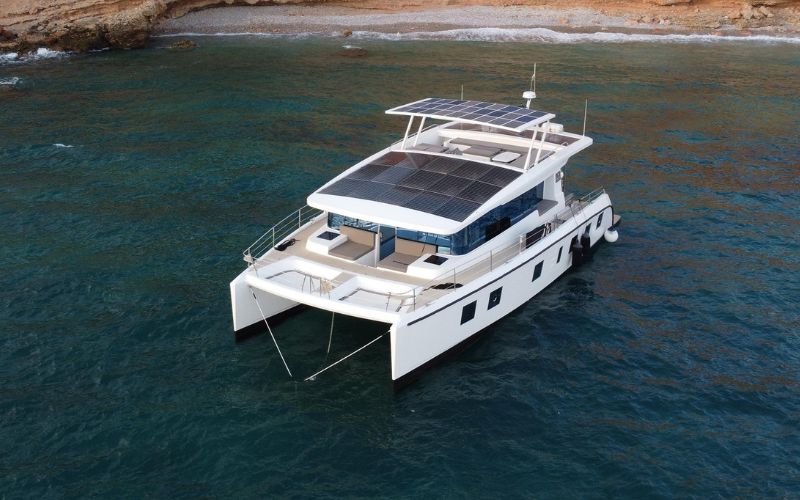
Serenity Yachts – Serenity 64
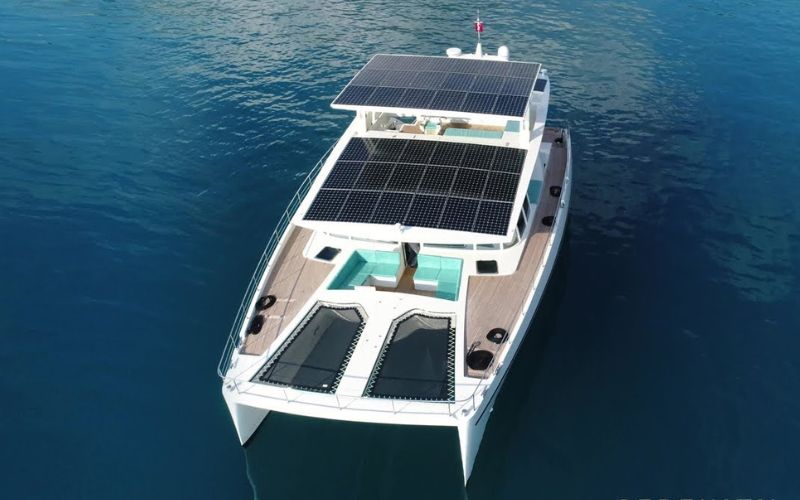
Sunreef 80 Eco

Soel Yachts – Soel Senses 48
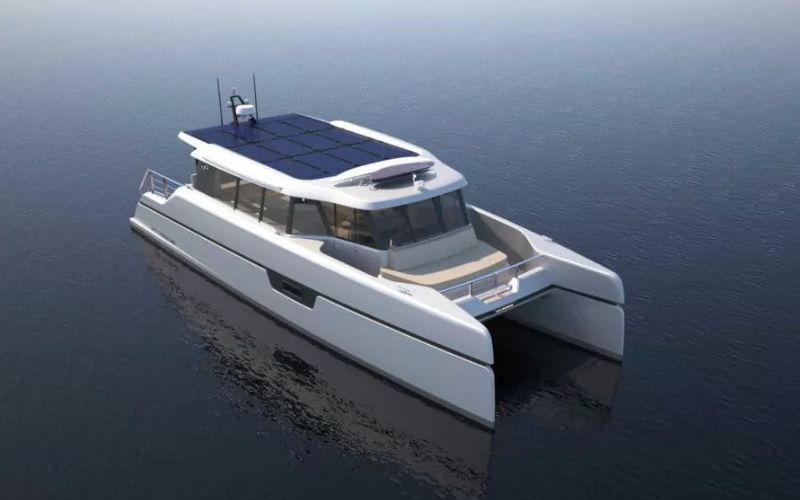
Azura Marine – Aquanima 40
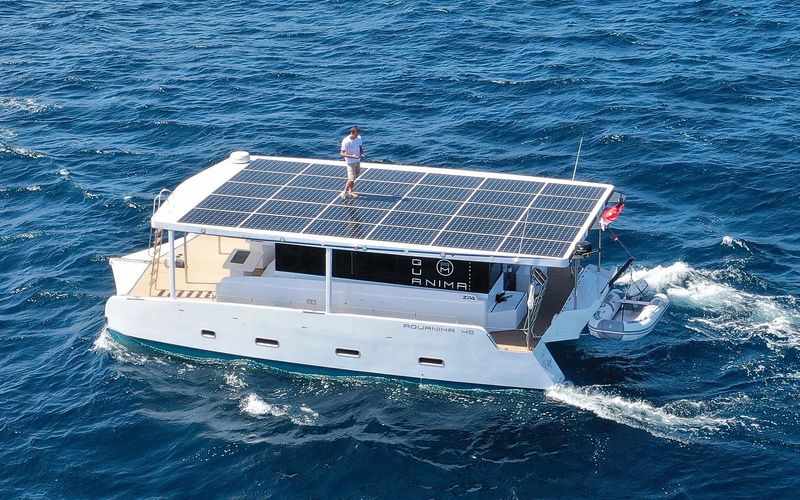
Silent Yachts – Silent 80 Tri-Deck Solar Catamaran

List of Best Solar Panels for Boats
- Renogy 100W 12V Portable Foldable Monocrystalline Solar Panel Charger For Camping
- WindyNation 200 Watt Solar Panel Complete Off-Grid
- TOPENS TSP30W Solar Panel 30-Watt 24V Monocrystalline Solar Panel Battery Charging Controller Kit
- DOKIO 100 Watts 12 Volts Monocrystalline Foldable Solar Panel with Charge Controller
- Renogy 160 Watt 12 Volt Extremely Flexible Monocrystalline Solar Panel
- TP-solar 60 Watt Foldable Solar Panel Battery Charger Kit
- AIMTOM SolarPal 100W Portable Solar Panel for Power Station, Solar Generator, Foldable Solar Power Charger for Camping
Conclusion
Solar boats have grown increasingly viable and appealing as solar and battery technology has advanced and boat owners have become more concerned about their environmental impact. Modern solar boats, from small solar-powered yachts to solar superyachts, are outfitted with cutting-edge technology to make them cost-effective, easy to maintain, and enjoyable to use. They’re also growing more affordable, and we hope that they’ll eventually be a mainstream option available to every eco-conscious sailor!
Banner Image source: Powerandmotoryacht.com
Read To Know More: What Everyone Ought To Know About Electric Bikes

